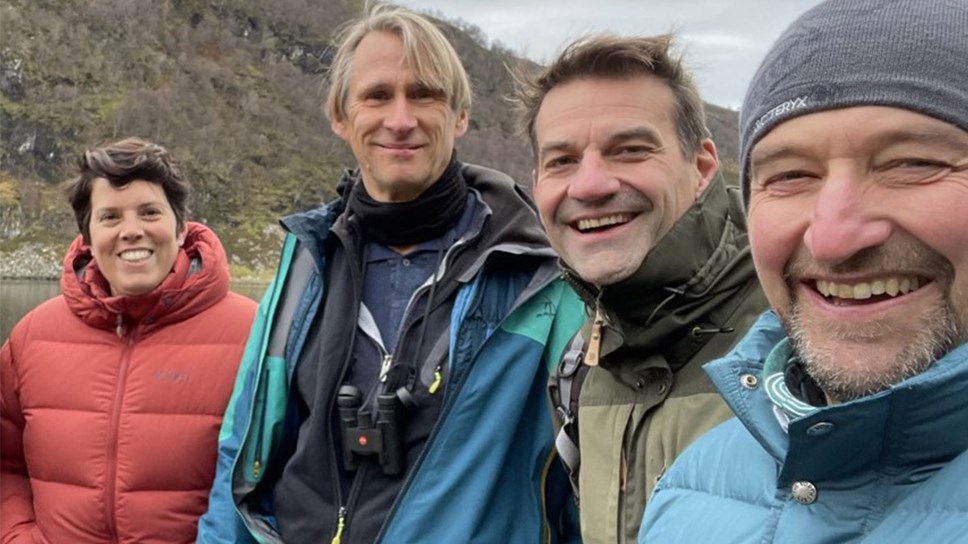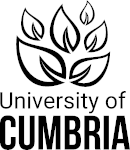
New rewilding handbook aims to change conservation conversations
As the UN Biodiversity Conference (COP 15) takes place in Canada, internationally renowned academics from the University of Cumbria are taking a leading role in a new book that looks to shape future conversations about conservation and rebuilding nature.
Professor Ian Convery and research associate Sally Hawkins, from the university’s Institute of Science and Environment, are leading figures in the Commission for Ecosystem Management Rewilding Thematic Group (RTG) that is part of the International Union for Conservation of Nature (IUCN).
Ian and Sally are two of the four editors of the new Routledge Handbook of Rewilding, partnering up in their three-year publishing project with fellow IUCN RTG founding members Steve Carver and Rene Beyers (pictured, above).
Aimed at conservation practitioners and students, particularly those with interests in ecological restoration, species reintroductions, and rewilding, the book includes case studies from around the world and explores key areas such as land acquisition and long-term planning, transitioning from human-led restoration to nature-led rewilding, along with political, social, and legal issues.
Case studies include the Yellowstone-to-Yukon project in North America, the Terai Arc Landscape project (a cross-border project in India and Nepal), the Mutawa/Kurrara Kurrara restoration project in Western Australia, the Gorongosa National Park in Mozambique, and the award-winning Natural Capital Laboratory in the Scottish Highlands.
Practised in rewilding for many years, the four editors have drawn upon experiences and perspectives from 60 experts, who are prominent figures in their chosen fields, with the book produced by leading academic publisher Routledge.
Those from the University of Cumbria also contributing chapters include:
- Agriculture expert and Professor of Practice Dr Julia Aglionby, in conjunction with PhD research student Hannah Field: Rewilding and farming: Could the relationship be improved through adopting a three compartment approach to land use?
- Enthnobiologist and bushcraft and wilderness survival expert Dr Lisa Fenton, with Zoe Playdon: Rewilding ‘knowledges’: Blending science and Indigenous knowledge systems
- Professor in Human Nature Relations, Professor Chris Loynes - Wild adventure: A restorying
- Professor of Outdoor and Environmental Education, Professor Heather Prince - Rewilding children and young people: The role of education and schools
Sally said: “Rewilding is a multi-discipline subject which offers a major transformational shift in conservation thinking and, at this time of complex global issues, is increasingly of interest to academics, policymakers, and practitioners, yet commonly the term is defined and used in a variety of different ways.
“Offering a comprehensive overview of the history, theory and current practices of rewilding, we are delighted that we’ve been able to create this book which draws upon ongoing research, current best practice for rewilding, and policy development within the IUCN.”
Dr Helen Manns, Director of the university’s Institute of Science and Environment, (right) said: “The collaboration within and out with of our academic and research team on this new internationally important publication is an illustration of the applied research, learning and practice that is central to our university’s mission to transform lives and livelihoods, helping to inspire and equip those around us with skills and knowledge that enables our communities, economies and environments to thrive.”
Copies of the book in hardback and e-version are available here or via www.routledge.com, with plans for it to be published in paperback in 2023.
END
Notes to editors
Images:
* All four Routledge Handbook of Rewilding editors in Scotland, during a visit to the Natural Capital Laboratory which is one of the case studies featured in the book, (l-r) Sally Hawkins, Rene Beyers, Steve Carver and Ian Convery.
* University of Cumbria's Sally Hawkins and Ian Convery with Jack Ewing during a visit to the Hacienda Baru rewilding project that Jack manages in Costa Rica. Jack started “rewilding” back in 1975, before the term rewilding existed, using natural forest regeneration.
* University of Cumbria's Dr Julia Aglionby, Dr Lisa Fenton, Professor Chris Loynes and Professor Heather Prince.
* Dr Helen Manns, Director, Institute of Science and Environment, University of Cumbria
* Front cover of Routledge Handbook of Rewilding
Further information:
- Ian Convery: https://www.cumbria.ac.uk/about/news/articles/articles/rewildings-global-expert-reveals-a-20-year-journey-towards-acceptance.php
- Sally Hawkins: https://www.cumbria.ac.uk/study/academic-staff/all-staff-members/sally-hawkins.php
- Julia Aglionby: https://www.cumbria.ac.uk/about/news/articles/articles/leading-university-role-for-national-uplands-expert.php
- Hannah Field: https://www.cumbria.ac.uk/about/news/articles/articles/cumbrian-role-in-key-national-farm-and-countryside-study-.php
- Lisa Fenton: https://www.cumbria.ac.uk/study/academic-staff/all-staff-members/lisa-fenton.php
- Chris Loynes: https://www.cumbria.ac.uk/study/academic-staff/all-staff-members/dr-chris-loynes.php
- Heather Prince: https://www.cumbria.ac.uk/study/academic-staff/all-staff-members/heather-prince.php
- UN COP 15 conference - https://www.unep.org/un-biodiversity-conference-cop-15
- IUCN CEM Rewilding Thematic Group - https://www.iucn.org/our-union/commissions/group/iucn-cem-rewilding-thematic-group







